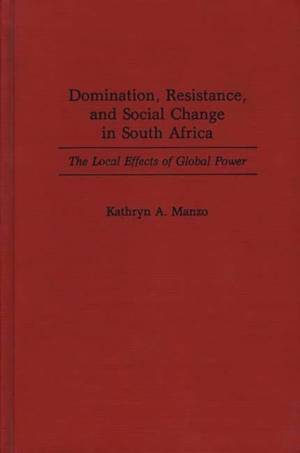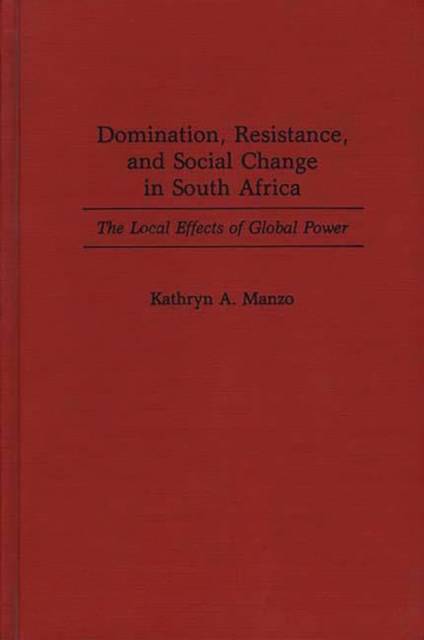
En raison d'une grêve chez bpost, votre commande pourrait être retardée. Vous avez besoin d’un livre rapidement ? Nos magasins vous accueillent à bras ouverts !
- Retrait gratuit dans votre magasin Club
- 7.000.000 titres dans notre catalogue
- Payer en toute sécurité
- Toujours un magasin près de chez vous
En raison de la grêve chez bpost, votre commande pourrait être retardée. Vous avez besoin d’un livre rapidement ? Nos magasins vous accueillent à bras ouverts !
- Retrait gratuit dans votre magasin Club
- 7.000.0000 titres dans notre catalogue
- Payer en toute sécurité
- Toujours un magasin près de chez vous
Domination, Resistance, and Social Change in South Africa
The Local Effects of Global Power
Kathryn A Manzo
161,45 €
+ 322 points
Description
Manzo examines, by means of historical analysis, the effects of global power relationships on the politics of South Africa. The author looks at the ways in which global power constructs identity, normalizes relations of domination, and shapes the form that resistance takes. She asks, for example, why dominated people are so often waging conflicts among themselves rather than directing their resistance unfailingly toward their oppressors. Why, too, is open defiance relatively rare and mass action infrequently used?
South Africa, as an example, is used to illustrate the much broader experience of oppressed populations as they struggle against western domination. The book vividly portrays the complexity of relationships in South Africa and the role played by black resistance in economic and political change over time. Manzo's sound interpretation unifies and enriches the historical progression and establishes a solid foundation for analyzing the lessons South Africa offers about the use of power in international relations.Spécifications
Parties prenantes
- Auteur(s) :
- Editeur:
Contenu
- Nombre de pages :
- 304
- Langue:
- Anglais
- Collection :
Caractéristiques
- EAN:
- 9780275943646
- Date de parution :
- 15-09-92
- Format:
- Livre relié
- Format numérique:
- Genaaid
- Dimensions :
- 156 mm x 234 mm
- Poids :
- 603 g

Les avis
Nous publions uniquement les avis qui respectent les conditions requises. Consultez nos conditions pour les avis.






